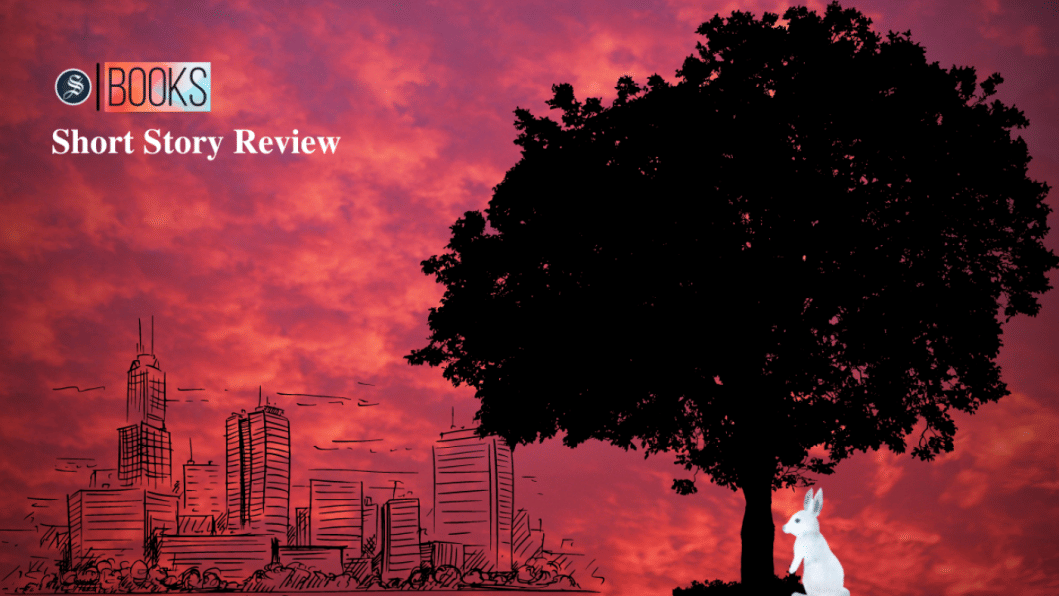Can a city hold a home? - Shagufta Sharmeen Tania’s short story, “What Men Live By”

"What Men Live By" opens like a children's story—the way Matilda or most Roald Dahl books would start out—with simple, everyday events and straightforward descriptions. Eventually, though, one line caught my attention and I couldn't help but smile: "Here they referred to weather like this as four seasons in one day". It reminded me of my brief stay away from home in Melbourne—where they said the same.
What I found out gradually was that there was more 'telling' in this story, as opposed to the expert-prescribed 'showing'. "I was too young to understand the conflict between Safdar and my mother", the narrator's child self reflects matter-of-factly. Presenting, perhaps to a foreign reader, the nuances of her native culture and ideas that we take for granted, she writes, "Back in those days in our country, [insane people] were forced to marry to 'cure' their madness". The distinction in the voice—one, that of the adult narrator and the other, of the child observer—comes through without hitches.
The narrator's memories—and the makeup of the plot—revolve around a Mahua tree named Fuljharia, planted by her uncle, Safdar, in their Kalyanpur house. It disappoints and deprives the family for years by not "flowering on moonlit nights, nor providing ghee or deworming medicine". Parallels of the 'unfruitful' tree are drawn with Safdar whose marriage, mental health, and eventually Safdar himself "[break] down". However, the tree springs back to life and "large cracks show in the grey trunk, like the passage of time", restoring a silver lining of hope for the family, for the young narrator, and the readers.
Upon being shortlisted for the Commonwealth Prize, Shagufta Sharmeen told The Daily Star that her "story concerns the lost souls of a metropolis… those magnificent beasts that cannot find their places in a growing, sprawling cityscape".
In that vein, the narrative also highlights Madhu, a beautiful, big white rabbit with ruby eyes, who had been brought from Belgium for animal testing. Despite being wanted by the narrator, the rabbit's advances of friendship are rejected by the long term resident and housecat, Satin. Soon, "members of our household became impatient with Madhu's ways" of digging holes everywhere. The narrator's cousin eventually takes it home to a colony, where people come to visit it, even asking to adopt it.
The writer's sentiment about lost souls shine through here—it projected onto my mind an image of a giant rabbit trapped in a maze of buildings and urban structures, looking for a home.
I found the narrative to be poignant, having stayed away from home for some time. It invoked a sense of nostalgia: the setting of colonies, trees, pets; Kalyanpur felt known. An introspective piece written by a displaced adult shaped by the memories of home, from the perspective of a child trying to grasp at a carousel of events happening around her—there was a thread that bound her experiences to mine.
Yet, the events that she wrote about, although familiar, felt distant. To satisfy my curiosity I ventured to read the original Bangla version, "Manush Ja Niye Bache". I then understood why I couldn't quite connect to them.
Judging from its title, a native speaker would be able to tell that the English translation (done by the author herself) doesn't quite have the same impact as that of the Bangla; there is big disparity between the Bangla title and the gendered, implied meaning of the title in English. In Bangla the story sounds closer to home. The tone in the original is more poetic, the characters and events more wholesome and endearing.
Maisha Syeda is a writer, painter, and the Sub-editor of Daily Star Books.

 For all latest news, follow The Daily Star's Google News channel.
For all latest news, follow The Daily Star's Google News channel. 









Comments